Dental Veneers in Spain
Waiting for that ideal smile but can’t afford cosmetic dentistry in your country? Uninsured patients from UK and US often struggle with this. But, getting dental veneers in Spain can help you bypass the hefty bills!
You can modify the color, shape, size, or length of your teeth for a fraction of the cost quoted back home. Still, research is a must to ascertain the best value for your money.
This article will help you identify the top hospitals to ensure high-quality and safe dentistry in Spain.
Why Choose Spain for Dental Veneers – The 6 Reasons
Spain offers excellent dentistry standards. Also, they are well regulated by the government.
Dentists in Spain must register with the Spanish Dental Association to practice.
Many also register with the Spanish Society of Implants (SEI) and the Spanish Society of Stomatological and Aesthetic Prosthesis (SEPES).

Choosing to have your veneer procedure in Spain offers the following advantages:
1. Affordable Costs
Save up to 50-70% on dental veneers as compared to the cost in the UK or the States. Find the detailed price in the cost comparison section below.
2. Safety & Quality
Spain hosts highly trained dental specialists. They offer advanced and swift treatment options. Also, you can expect expert follow-up services.
3. Accessibility
Spain is easily accessible by air, road, rail, or water from the UK, USA, or Canada. In fact, within the country, you can look at it as one of the most accessible ones for a tourist.[1]World Foot Prints
Spain leads the way in Accessible Tourism Initiatives
“Spain is amongst the only few countries to ensure easy accessibility to all or any its cultural sites. The city (Pamplona) was made and built to relieve the mobility of disabled people.”
View in Article
4. No Waiting Lists or Delays
You can schedule an appointment with the dentist without a long waiting time. Get one-day easy treatment plans by dental specialists.
5. Popular Tourist Location
If you love the sun and have a weakness for beaches, you would love Spain. Rich in historical culture, famous for its carnivals & fiestas, Spain intoxicates the senses.

Calatrava, Sunset

Peniscola Castle Beach
6. Language No Bar
Many private clinics and hospitals in Spain offer their consultation in English. Where needed, one can choose interpreter services too.
But where to get the best of these six benefits?
MTC case managing experts can help you plan a safe and affordable medical trip. Avail of US standard services at our specialized partner clinics in Madrid and Barcelona. In return, bag the smile and confidence you’ve wanted for so long.
Best Hospitals in Spain
Our network of dental partners goes through a stringent process to ensure the highest quality standards for our patients.
Five Quality Checks at MTC:
✔️ Licensed with the Spanish Dental Association
✔️ Accredited by FAD, an accreditation partner by the JCI
✔️ Continuous participation in conferences on the latest treatments
✔️ Proficiency in latest technologies & state-of-art facilities
✔️ Training from prestigious medical institutions
All hospitals in Spain are recognized and supervised by the Spanish Ministry of Health. With an added filter of our quality parameters, these hospitals stand out as the top two: Quiron Salud, Madrid & Quiron Salud, Barcelona.
Quironsalud University Hospitals enjoy the Joint Commission International gold seal accreditation, the most demanding worldwide for the health field.
It analyzes that all the hospital’s care and processes are focused on safety and quality and on a process of continuous improvements.
Three pillars comprise the foundation of its healthcare philosophy:
- Top-level professionals
- Cutting-edge technology, and
- Personalized attention
Surgeons perform treatments under conscious sedation, always controlled by anesthesiologists. Patients tend to enjoy a unique dental experience without any pain.
How to Reach Quironsalud Madrid?
Quironsalud Madrid is about twenty minutes drive from Madrid city center.
By Air
The distance by car from Madrid-Barajas International Airport (MAD) is 28 kilometers, which can be covered in about 30 minutes.
A taxi ride from the airport to the hospital will take about half an hour and cost approximately fifty euros. You can also reach our center using public transport.
The journey time on the underground system (metro) is estimated at approximately one hour. A metro ticket costs €1.50.
By Train
Madrid has two mainline railway stations (Renfe) for conventional and high speed (AVE) services:
Atocha: Located in the center of Madrid, this is about 20 minutes away from the hospital by car.
Chamartín: This is located in the northern part of the city. The journey to the hospital takes about 25 minutes by car.
How to Reach Quironsalud Barcelona?
Barcelona is in north-eastern Spain. It stands on the shores of the Mediterranean, 120 km south of the French border.
With a population of 5 million in the entire metropolitan area, Barcelona is the sixth-largest city in the European Union.[2]ESA
Barcelona, Spain
“With a population of around 4.5 million people, being the sixth-most populous urban area in the European Union after Paris, London, Madrid,”
View in Article
By Air
Barcelona Airport (BCN) is 12 kilometers from the city and has very good connections for reaching the center in less than 20 minutes.
Travel Duration from Barcelona to Other Cities
| City | Travel Duration |
| Madrid | 1h 15min by plane (3h by high-speed train) |
| Paris | 1h 40min by plane |
| Rome | 2h by plane |
| London | 2h 15min by plane |
| Berlin | 2h 30min by plane |
By Train
The main railway station is Sants, reached by Spanish and international trains.
The AVE (Spanish high-speed train) connects Barcelona with Madrid, Zaragoza, and Seville, and the Euromed, which connects Barcelona with Valencia, also stops there.
By Car
Hospital Quirónsalud Barcelona stands opposite junction 6 of the Ronda de Dalt (upper ring road). This communication route connects the city with the AP7 toll motorway leading north and south.
By Sea
Cruises: The Port of Barcelona is the main port for Mediterranean cruises.
Ferry: Regular shipping lines and the ferries that connect the city with points in Spain, such as Mallorca (Balearic Islands), as well as international ones like Genoa (Italy), call at the Port of Barcelona.
How Much Do Dental Veneers Cost in Spain?
Dental veneers in Spain cost between $240 and $885, with an average price of $534 per tooth. Specifically for traditional porcelain veneers, the cost range can be $500 – $650 per tooth.
However, in the United States, it can cost an average of $925 to $2,500 per tooth for porcelain veneers.
Even in the UK, composite veneers can cost between $250 and $1200 for a single tooth. For a porcelain veneer, you may end up paying more than $900 per tooth.
Cost of Dental Veneers (per tooth) – Spain vs. the UK
| Currency | Spain | UK |
|---|---|---|
| Pound Sterling | £414 | £1,461 |
| US Dollar | $530 | $1,871 |
| Euro | €495 | €1,745 |
| Canadian Dollar | $715 | $2,525 |
*The cost varies based on the clinic location, seasonal demands, and the shape/size of the teeth.
**The price for dental veneers does not include the hotel stay and airfare.
Patients often get a discount if they buy a whole set of veneers. But, it can still look very expensive.
The full set of veneers consists of eight or more veneers (all front teeth). Getting one such set in the US can cost between $10,000 and $40,000.
Still, to fix a few crooked or discolored teeth, you may only need four or fewer veneers. Identify the cheapest options and choose a package that suits your individual needs. Connect with us today and get a chance to avail of a free consultation with a dentist in Spain.
Dental Veneers and Their Advantages
Dental veneers are custom-made, thin shells of porcelain or resin materials. These cover the front portion of the teeth.
Once cemented, they look exactly like natural teeth and completely change how they look and feel.
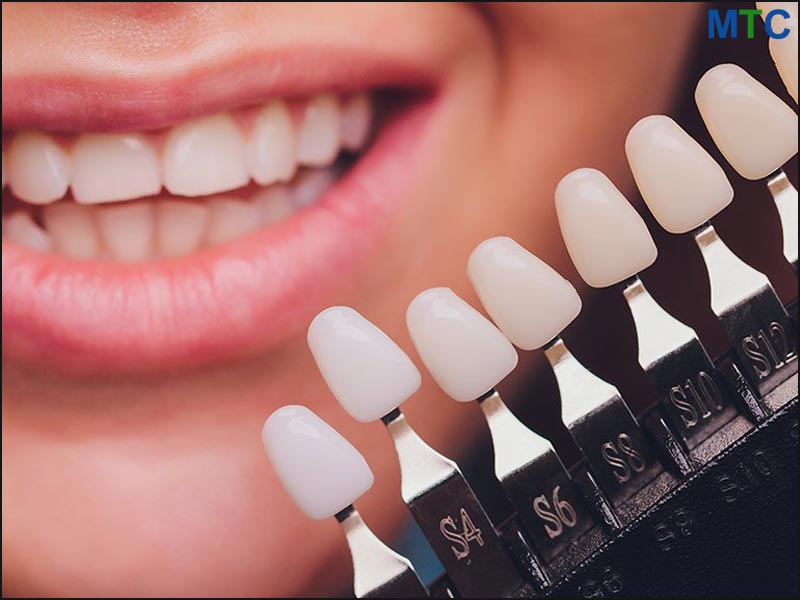
Dental veneers only cover the front surface of the teeth. Depending on the material used and the aftercare, most dental veneers last up to 5 – 10 years.[3]American College of Prosthodontists
Dental Veneers FAQ
“Typically, a veneer lasts approximately 5-10 years”
View in Article Veneers are advantageous for those who suffer from the following problems:
- Teeth that are broken or chipped
- Teeth discoloration, yellow teeth, and teeth stains
- Small gaps in the teeth
- Too small teeth or uneven tooth sizes
- Crooked, pointed, or weird tooth shapes
Types of Veneers Available in Spain
1. Porcelain Veneers
These are expensive but look the most natural and are most durable.
They mimic the natural shine and contours of the teeth.
Porcelain veneers are known to last over 10 years.[4]Pubmed
Clinical performance of porcelain laminate veneers for up to 20 years
“Porcelain laminate veneers offer a predictable and successful restoration with an estimated survival probability of 93.5% over 10 years.”
View in Article They sit well with the gum tissues in the mouth and are the most natural-looking and durable.
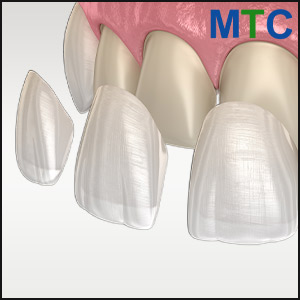
2. Composite Veneers
These are veneer molds made of composite resin.
They blend well with the natural tooth color.
But they can discolor or get stains in time. They can last anywhere between 5 – 7 years.[5]Healthline
Everything You Need to Know About Composite Veneers
“Composite veneers are considered more durable today than in the past. They can last 5 to 7 years, on average.”
View in Article They are cheaper and easily created.
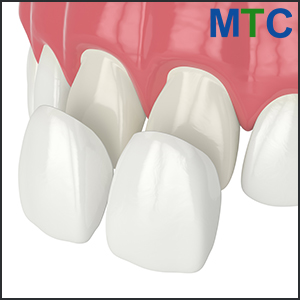
3. Lumineers
These are a brand of veneers that are translucent and ultrathin.
They need minimal preparation before placement.
Though the longevity of lumineers is the same as porcelain veneers (up to 10 years),[6]Healthline
Veneers vs. Lumineers: What’s the Difference?
“The manufacturers of Lumineers claim they last for up to 20 years. Other sources report these types of veneers only last up to 10 years before needing to be replaced.”
View in Article they are more susceptible to chipping.
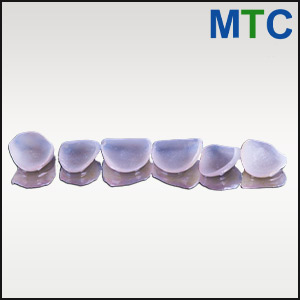
Places to Explore in Spain
Madrid
Madrid is a cheerful city, capital of Spain, and home to the Real Madrid football team. It is famous for its world cuisine and unbeatable nightlife, the reason why thousands go here.
If you have an eye for art, don’t miss Prado, one of the world’s best and famous art museums. Last but not least, enjoy the Spanish Flamenco tablao dance if you ever get a chance.
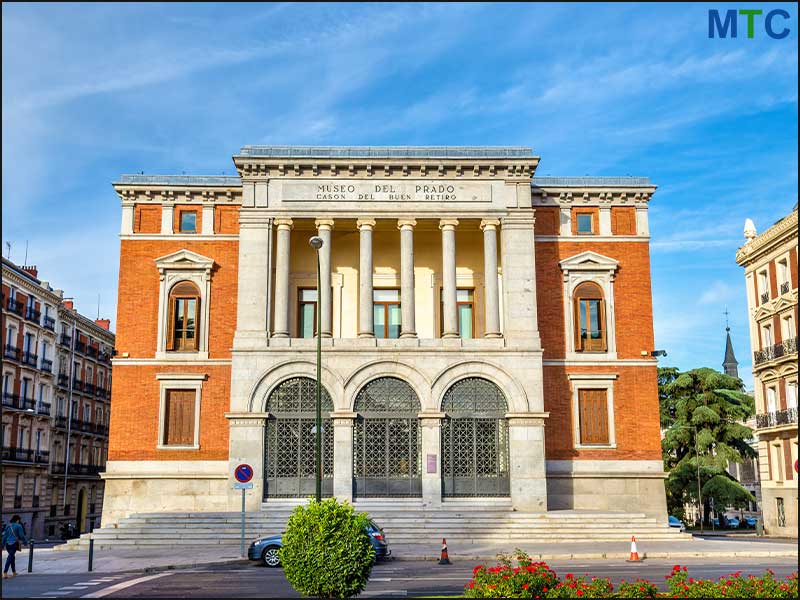
Barcelona
Barcelona is another city home to football enthusiasts and the party-going crowd alike.
In addition to Gaudi and Messi, Barcelona is famous for its fine art, iconic parks, and art spaces. One of the best-known sites is the Cathedral, La Sagrada Família.

Frequently Asked Questions (FAQs)
Q. How long should I stay in Spain for a veneer procedure?
A. Approximately 2-3 days. Veneers may require up to 3 dental sessions[7]WebMD
Dental Veneers
“Getting a dental veneer usually requires three trips to the dentist – one for a consultation and two to make and apply the veneers.”
View in Article for the whole procedure to be complete. If the teeth are extremely crooked, additional time may be required.
The procedure duration depends on your teeth condition and the number of veneers to be placed.
Q. What’s the recovery time for veneer procedures in Spain?
A. You may feel a bit sensitive, post the enamel removal for the veneer mold. But that usually corrects in 2-3 days.
There is no formal recovery time for the veneers procedure since this procedure does not include surgery or any stitches. It is good to avoid very hot or cold foods, including complex, chewy, or crunchy food.
Q. What sort of aftercare is required for veneer procedures?
A. Your dentist may advise you to follow good oral hygiene, make regular visits to your dentist and have a good healthy lifestyle. Brush at least two times daily after your meals. Don’t chew excessively.
Though dental veneers can last beyond ten years, simple aftercare steps can help them last longer.
Q. Are there alternatives to veneers procedures in Spain?
A. Dental veneer procedures are not for everyone. There are alternatives for veneer procedures, which are primarily dependent on your condition. These alternatives may include:
Orthodontics: Dental veneers may not be the right solution for those suffering from crooked teeth or malocclusion.
You may want to consider a more comprehensive orthodontic procedure to treat your case. We can help you find the right experts at Quiron Salud.
Dental Crowns: Dental crowns are perfect for those who have considerable damage that affects the strength and structure of their teeth. Crowns are restorative treatments that need expert attention more than cosmetic veneers.
The Upshot
Did you find answers to all your questions?
It is certainly worth considering getting your dental veneers in Spain. Not only are the savings worth it, but the services and quality of treatments are also at par with those in the US and UK.
If you want to discuss more options, feel free to connect with us. Our team can help create a customized travel package for you.
References
1. World Foot Prints: Spain leads the way in Accessible Tourism Initiatives
2. ESA: Barcelona, Spain
3. American College of Prosthodontists: Dental Veneers FAQ
4. Pubmed: Clinical performance of porcelain laminate veneers for up to 20 years
5. Healthline: Everything You Need to Know About Composite Veneers
6. Healthline: Veneers vs. Lumineers: What’s the Difference?
7. WebMD: Dental Veneers








